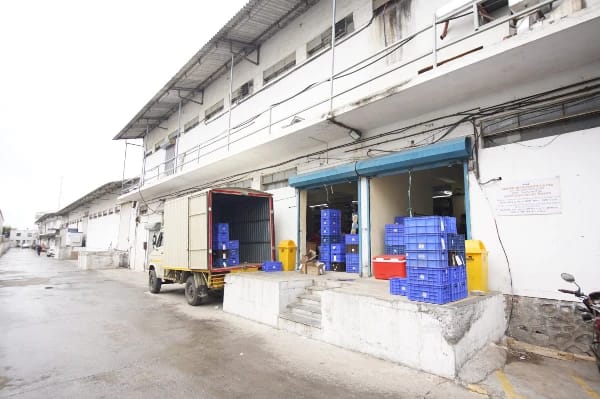Quick Commerce Dark Stores.
Quick commerce dark stores poised to boost India’s real estate demand:
In 2023, the demand for dark store space in India reached an impressive 24 million square feet (msf). According to a joint study by JLL and Miebach Consulting, this demand is projected to grow at a CAGR of 12%, reaching 37.6 msf by 2027. According to Deloitte, the country’s q-commerce market is estimated to grow up to $40 billion by the calendar year (CY) 2030 at a CAGR of 45%.
The real estate requirements for dark stores are different when compared to retail outlets. Dark stores are mini warehouses spanning an area of 2,500 to 4,000 sq.ft. These urban, micro-fulfilment centres are located in strategically identified, densely populated locations. The locations are identified on factors such as consumer demand, lease rentals, traffic during peak hours, space for logistical operations, and delivery partners to move in and out.
“Consumer habits are shaped in a way that they expect quicker delivery and are more used to online shopping. Dark stores are located in a way that the q-commerce platforms can deliver in 15 to 30 minutes,” said Vimal Nadar, senior director and head of research, Colliers India.
Earlier, properties that were on a main road or the high streets were in demand. But dark stores changed the scenario as they can be anywhere. Property prices, which were lagging, are now beginning to shoot up, not just in Tier-I, but in Tier-II cities as well. Real estate prices are also going up significantly wherever the quick commerce companies are expanding.
Cost-effective logistics, rent-generating asset for real estate:
“Vacant retail spaces are being transformed into dark stores, maintaining occupancy rates in commercial properties and providing e-commerce companies with prime delivery locations,” said Balbir Singh Khalsa, executive director, industrial capital markets, Knight Frank India.
For landlords, dark stores generate rental income in the range of Rs 40 to Rs 200 per square foot per month, notes Savills India Research. Among the top seven Indian cities, dark stores in Delhi have the highest rental value of Rs 150–200 per square foot per month.
Leading quick commerce companies in India:
India’s quick commerce industry has experienced explosive growth, with sales increasing by over 280% in two years, according to a Chryseum report. Some of the leading companies in this segment are:
- Zepto
Founded in 2021, Zepto has rapidly gained traction by offering grocery and essential delivery in as little as 8-10 minutes. Its network of over 100 micro-warehouses enables the company to fulfill 2,500 orders daily in cities like Pune, Mumbai, Delhi, Bangalore, and Chennai. Zepto also experiments with nominal platform fees and higher charges during peak times to enhance profitability.
- Blinkit
Previously known as Grofers, Blinkit is a pioneer in the quick commerce space. It operates in 14 cities and boasts a market share of 46 percent, the highest among its competitors. With over 250 micro-warehouses and partnerships with 14,000 delivery agents, Blinkit ensures seamless operations and quick turnarounds, delivering essentials in 10-20 minutes.
- Swiggy Instamart
Launched in 2020, Swiggy Instamart leverages Swiggy’s existing delivery infrastructure to deliver groceries within 45 minutes across 18 cities. By collaborating with dark stores and utilizing eco-friendly delivery methods like e-bikes, it has become a formidable player with a 27 percent market share.
- Dunzo
Dunzo Daily focuses on delivering groceries, medicines, and household essentials in 35-40 minutes. It uses AI-powered logistics to optimize deliveries and manage demand efficiently. Dunzo also generates additional revenue through partnerships with D2C brands advertising on its platform.
- BigBasket
BigBasket, known for its expansive grocery offerings, has entered the quick commerce market with BB Now. Operating in over 40 cities, it combines its existing infrastructure with dark stores and Kirana partnerships to deliver groceries quickly while maintaining its reputation for quality and reliability.
Compliance Concerns:
Dark store operators are facing several challenges, including traffic congestion, a lack of availability of space that complies with regulations such as Fire NOC and approved plans, and limited availability of supply.
There is also a challenge in terms of the hygiene levels and the accessibility of properties. Many properties are not conforming to regulatory norms. And you can see many dark stores coming under scrutiny for issues related to compliances and hygiene standards.
At Reality Warehousing, we provide well-maintained, clean & hygienic warehouse spaces that comply with all relevant government standards. Our micro RCC warehouses are perfect for dark stores, located strategically close to the bustling IT hub of Kharadi & Wagholi, and can contribute in the rapidly growing quick commerce industry.


